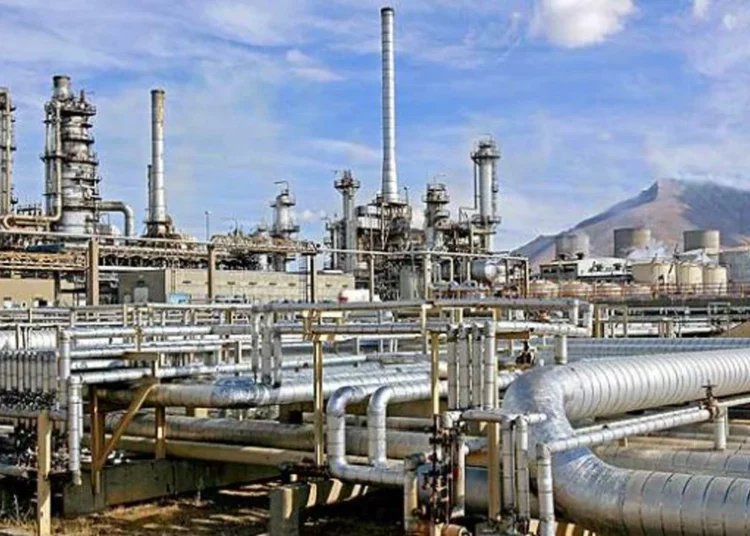Some key oil and gas companies have advocated immediate review of the Petroleum Industry Act (PIA) to create a level playing fields for investment.
The Nigerian Independent Petroleum Company (NIPCO) Plc said this has become necessary after it unveiled its plans to increase its investment in the sector to further enhance smooth distribution of petroleum products across the country.
Managing director/chief executive Officer, NIPCO Plc, Suresh Kumar, who disclosed this at the 18th Annual General Meeting of the company, in Abuja, said NIPCO is poised to tap into the opportunities presented by the Petroleum Industry Act (PIA), to further drive its mission of meeting the needs of stakeholders in a deregulated downstream sector of the nation’s oil and gas industry.
Kumar said: “This year, 2022 is very significant for operators in the hydrocarbon industry with the PIA implementation and attendant reforms, especially the deregulation of the downstream sector. Kudos to the federal government for enacting the Act, which hopefully will support growth of the hydrocarbon industry. We hope to harness the business opportunities in the country and significantly expand our investment in the industry within the framework of right operating environment, which is key in boosting investors’ confidence,”
He said NIPCO is determined to continually take its pride of place in the context of the emerging downstream sector under the PIA, as it would continue to be transparent, diligent, socially responsible and operate within the ambit of good corporate governance in the best interest of stakeholders.
Kumar said that the company intends to consolidate the gains of the past years and take full advantage of the great potentials of the industry to propel the company for higher growth.
He told the investors that the year 2021 was very challenging for the economy with oil and gas having its fair share due to COVID-19 and its deadly variants.
He lauded the federal government’s efforts at ensuring that LPG price is within the reach of the populace, calling for smooth implementation of its gas development initiatives.
The NIPCO boss said the National Gas Expansion Programme (NGEP) is making giant strides to improve local supplies and save the nation considerably some ancillary cost in LPG import cost.
According to him, the NGEP initiative and the declaration of the decade of gas could take the nation’s efforts in the gas realm to the next level, adding that the feat, if fully actualized will undoubtedly make the sector more attractive for investors.
Kumar urged the Federal Government to make good its promise to procure 10 million gas cylinders for marketers for onward distribution to end-users. This, he said would no doubt, boost LPG utilization as cost of cylinders account for over 80 per cent of accessories needed to use gas as domestic cooking fuel.
He assured of the company’s commitment to Corporate Social Responsibility (CSR), noting that the effective utilization of the computer laboratory project in which it offered several computers and printers to boost computer literacy in primary schools in Apapa area of Lagos State, is a source of our motivation for to do more.
Similarly, the managing director and CEO of Renaissance Africa Energy Company Limited, Tony Attah, has called for a review of the PIA to align with current economic and sector realities.
Attah spoke on the theme: “Nigeria Oil and Gas: From Reforms to Recovery,” at the 2025 BusinessDay Annual CEO Nigeria Forum held in Lagos on Thursday.
He noted that while the PIA was a landmark reform when signed into law in August 2021, it had been in development for over two decades, during which time the global energy sector underwent significant transformation.
“The PIA was a bill for 20 years, and while we were busy trying to get it right, the rest of the world moved on,” Attah said, adding: “It doesn’t take cognisance of digitalisation, doesn’t recognise AI, and in today’s world, you cannot survive without digitalisation.
“The PIA came late even for its time.”
Attah commended the Nigerian government for recent reforms, including the Executive Order raising contract approval thresholds from $500,000 to $10 million, which he described as a “game-changer” for operational flexibility in a multi-billion-dollar industry.
He also praised the evolving regulatory environment, noting that over 50 per cent of Nigeria’s oil production is now driven by indigenous companies, a testament to the success of local content policies and regulatory support.
“Government reforms are working. Nigerians are taking over. But while the reform is on, there’s still a lot more to be done,” he added.
Attah highlighted pipeline security as a critical challenge, urging regulators to define clearer frameworks for safeguarding infrastructure and ensuring that production reaches the export terminals without disruption.
“Production is no longer the problem, it’s getting it to market. Between production and point of sale lies the pipeline, and that’s all about security,” he said.
Reaffirming Renaissance’s commitment to national development, Attah described the company’s vision as Afro-centric, focused on enabling energy security and industrialisation across Africa in a sustainable manner.
“We want to move Nigeria to centre stage as the true African giant. The renaissance has begun for our company and for our country,” he said.
Renaissance operates Nigeria’s largest upstream joint venture alongside NNPC Limited, TotalEnergies, and AENR, with a portfolio of 15 onshore and three shallow-water Oil Mining Leases, and the Bonny and Forcados crude export terminals.
In its first 100 days of taking over Shell’s shares in the defunct SPDC, Renaissance increased crude oil production by over 40 per cent, including significant gas deliveries to Nigeria LNG Limited.










